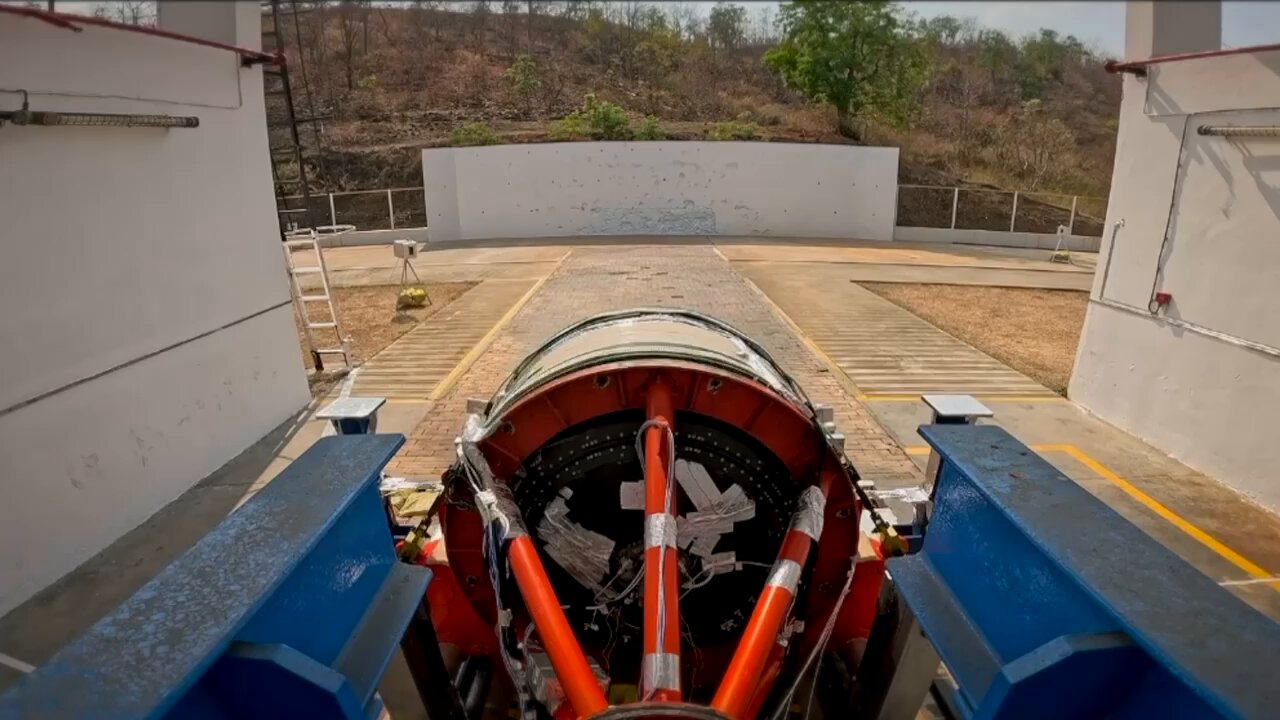SOURCE: AFI

In a significant milestone for India’s private aerospace sector, Solar Defence and Aerospace Limited (SDAL), based in Nagpur, has successfully developed and manufactured the propulsion system, including its igniter and the third-stage rocket motor, for the Vikram-1 Satellite Launch Vehicle. This achievement underscores SDAL’s growing role in advancing India’s space ambitions and highlights the increasing contribution of private industry to the nation’s aerospace ecosystem.
The Vikram-1, developed by Hyderabad-based Skyroot Aerospace, is poised to become India’s first privately built orbital rocket, with its maiden launch targeted for late 2025. SDAL’s contribution to this ambitious project—a robust third-stage rocket motor—marks a critical step toward realizing that goal. With a propellant mass of 2400 kg and a maximum thrust of 75,000 N (approximately 7.65 tons), this rocket motor is a testament to the precision and innovation driving India’s space technology advancements.
The third-stage rocket motor, a key component of the Vikram-1, is designed to propel the launch vehicle from the atmospheric phase into the vacuum of space, ensuring the precise placement of payloads into orbit. SDAL’s propulsion system integrates a high-performance igniter and a flex nozzle-based Thrust Vector Control (TVC) mechanism, allowing for dynamic trajectory adjustments during flight. This level of sophistication reflects the company’s capability to meet the exacting demands of space missions.
Before its successful static test, the rocket motor underwent rigorous Non-Destructive Testing (NDT) at SDAL’s state-of-the-art facility in Nagpur. NDT processes, including X-ray imaging, ultrasonic testing, and magnetic particle inspection, were employed to verify the structural integrity and quality of the motor without compromising its components. This meticulous approach ensured that the propulsion system met stringent safety and performance standards, a prerequisite for its role in the Vikram-1 mission.
The static test, conducted at SDAL’s dedicated testbed, further validated the motor’s capabilities. During the test, the nozzle was vectored to assess its thrust vectoring performance, while live data was recorded and analyzed at the Data Acquisition Centre. The successful firing demonstrated the motor’s reliability and readiness, bringing Skyroot Aerospace closer to its orbital launch milestone.
SDAL, a subsidiary of the Solar Group—a conglomerate known for its expertise in explosives and defense manufacturing—has leveraged its advanced engineering capabilities to support India’s space program. The company’s facility in Nagpur is equipped to conduct static tests for a range of rocket motors, from small-scale systems to large propulsion units for satellite launch vehicles and missiles. This infrastructure positions SDAL as a vital partner in India’s burgeoning private space sector.
The Vikram-1 project itself is a collaborative effort, with Skyroot Aerospace leading the design and integration of the launch vehicle. The rocket features three solid-fuel stages, with SDAL’s third-stage motor complementing the first-stage Kalam-1200 and second-stage Kalam-250, alongside a liquid-fueled Raman engine for final orbital adjustments. This partnership exemplifies the synergy between private enterprises and India’s space ambitions, supported by the Indian Space Research Organisation (ISRO) and the Indian National Space Promotion and Authorisation Centre (IN-SPACe).
The development of the Vikram-1 third-stage motor by SDAL is more than a technical achievement—it’s a strategic leap for India’s space industry. With a propellant mass of 2400 kg and a thrust of 75,000 N, the motor delivers the power and precision needed to place payloads of up to 290 kg into a 500 km Sun-Synchronous Polar Orbit (SSPO) or 480 kg into a 500 km Low Earth Orbit (LEO). This capability aligns with the growing global demand for small satellite launches, a market India aims to capture through cost-effective and reliable solutions.
The successful testing of this propulsion system also reinforces India’s push for self-reliance in space technology under the Atmanirbhar Bharat initiative. By developing critical components domestically, SDAL and Skyroot are reducing reliance on foreign suppliers, enhancing national security, and fostering innovation within the country’s industrial base.
NOTE: AFI is a proud outsourced content creator partner of IDRW.ORG. All content created by AFI is the sole property of AFI and is protected by copyright. AFI takes copyright infringement seriously and will pursue all legal options available to protect its content.